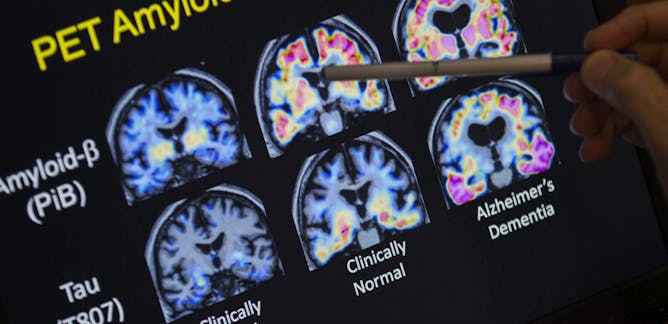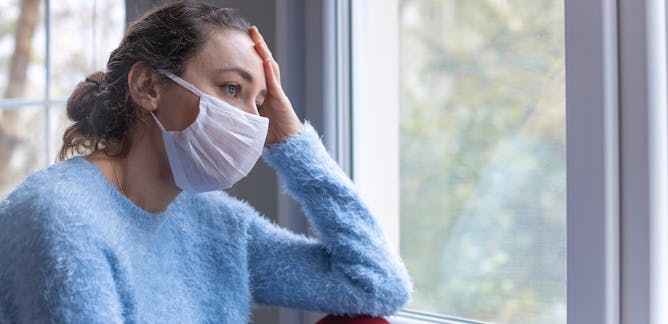|
|
|
|
Looking back at some of the health stories that The Conversation Canada has sent to your inbox in 2022, there’s an amazing selection of promising research, alarming news, system issues and potential solutions. COVID is still with us, but so are vaccines and new research looking more closely at how COVID-19 affects people. Medical research stories, especially about new discoveries like how COVID-19 damages lungs, or about difficult-to-treat conditions like Alzheimer’s disease, are always a welcome read.
But there have been disturbing stories, too, not just about things like long COVID and cancer diagnosis backlogs, but about issues like China’s transplant system that harvests organs from
prisoners and, closer to home, the ethics of Canada’s proposed expansion of eligibility for medical assistance in dying (MAID).
Since we’re ending 2022 with an overburdened health-care system flagging under the weight of a “tripledemic” of RSV, flu and COVID-19 (sorry to be a downer, but it’s hard to ignore), it’s worth pointing out that sometimes alternative approaches to care can make incremental differences. For example, delirium may not be the first condition you think of when you think of clogged health system, but it’s one that’s common enough and serious enough to cause ripples in the system. It’s also often preventable, which means so are the pressures it puts on emergency rooms. Similarly, treating the lung condition chronic obstructive pulmonary disease (COPD) in primary care might not only improve care, but also prevent emergencies that stress resources.
Beyond helping to prevent health system crises, some measures have the potential to help prevent some health problems from developing in the first place. Researchers have known for a long time that adverse childhood experiences (ACEs) are linked with poor health later in life. Perhaps most urgently, children at risk — like those in care — need better better support to achieve better health outcomes.
I’m ending 2022 with a thank you to all our readers and subscribers, and to the researchers and academics who share their expertise in The Conversation Canada. I’m looking forward to bringing 2023’s health stories to your inbox
|

|
Patricia Nicholson
Health + Medicine Editor
|
|
Year in Review: Health + Medicine
|

Stephen L Archer, Queen's University, Ontario
COVID-19 causes lung injury and lowers oxygen levels in patients because the SARS-CoV-2 virus attacks cells’ mitochondria. This attack is a throwback to a primitive war between viruses and bacteria.
| |

Donald Weaver, University of Toronto
Alzheimer’s may not be primarily a disease of the brain. It may be a disorder of the immune system within the brain. Beta-amyloid may not be an abnormal protein, but part of the brain’s immune system.
|

Manali Mukherjee, McMaster University; Zain Chagla, McMaster University
Not much is known about “long COVID,” including who, when or how badly it will strike, how long it might take to recover, or whether complete recovery is possible for all.
| |

Timothy P Hanna, Queen's University, Ontario
In future health emergencies and possibly further waves of the COVID-19 pandemic, caution needs to be taken when extending cancer waiting times for reasons unrelated to patients’ health-care needs.
|

Karandeep Sonu Gaind, University of Toronto
Canada’s planned expansion of MAID to mental illness is based on ignorance — if not outright disregard — of fundamental suicide prevention principles.
| |

Ali Iqbal, McMaster University; Aliya Khan, McMaster University
China’s industrial-scale organ trafficking practice has been executing prisoners of conscience and using their organs for transplantation for decades. This is known as forced organ harvesting.
|

Lita Cameron, McMaster University; Skylar Neblett, McMaster University
Family physicians are on the frontline of health care, and their observations and support can help us get through the upcoming winter season.
| |

Colleen Grady, Queen's University, Ontario
A strong primary care system keeps patients away from emergency departments and helps patients self-manage illnesses. But Ontario’s plan to ease pressure on emergency rooms ignores family medicine.
|

George A Heckman, University of Waterloo
Delirium doesn’t just harm vulnerable seniors. It prolongs hospital stays, ties up beds and clogs emergency rooms. Mandating senior-friendly hospital care protects patients and the health-care system.
| |

Andrew Scarffe, L’Université d’Ottawa/University of Ottawa; Christopher Licskai, Western University; Doug Coyle, L’Université d’Ottawa/University of Ottawa; Kednapa Thavorn, L’Université d’Ottawa/University of Ottawa; Kevin Peter Brand, L’Université d’Ottawa/University of Ottawa
Innovation in primary care for COPD patients has the potential to alleviate a significant strain on the health system by reducing emergency department visits and hospitalizations.
|

Wolfgang Linden, University of British Columbia; Joelle LeMoult, University of British Columbia
The impact of early childhood trauma on lifelong physical and mental health makes it urgent to invest in programs to support healthy pregnancies and stable, caring very early childhoods.
| |

Kristyn Anderson, Dalhousie University; Alyson Holland, Dalhousie University; Jacquie Gahagan, Mount Saint Vincent University; Steven Smith, Saint Mary’s University; Tania Wong, Dalhousie University; Tonya Grant, Dalhousie University
Children and youth in care are more likely to have experienced trauma that can affect future health. A comprehensive, trauma-informed health strategy for these children and youth is long overdue.
|
|
|
|
|
| |
| |
| |

|
| |
| |
| |
| |
| |
| |
|
|
|
|
|
|
|